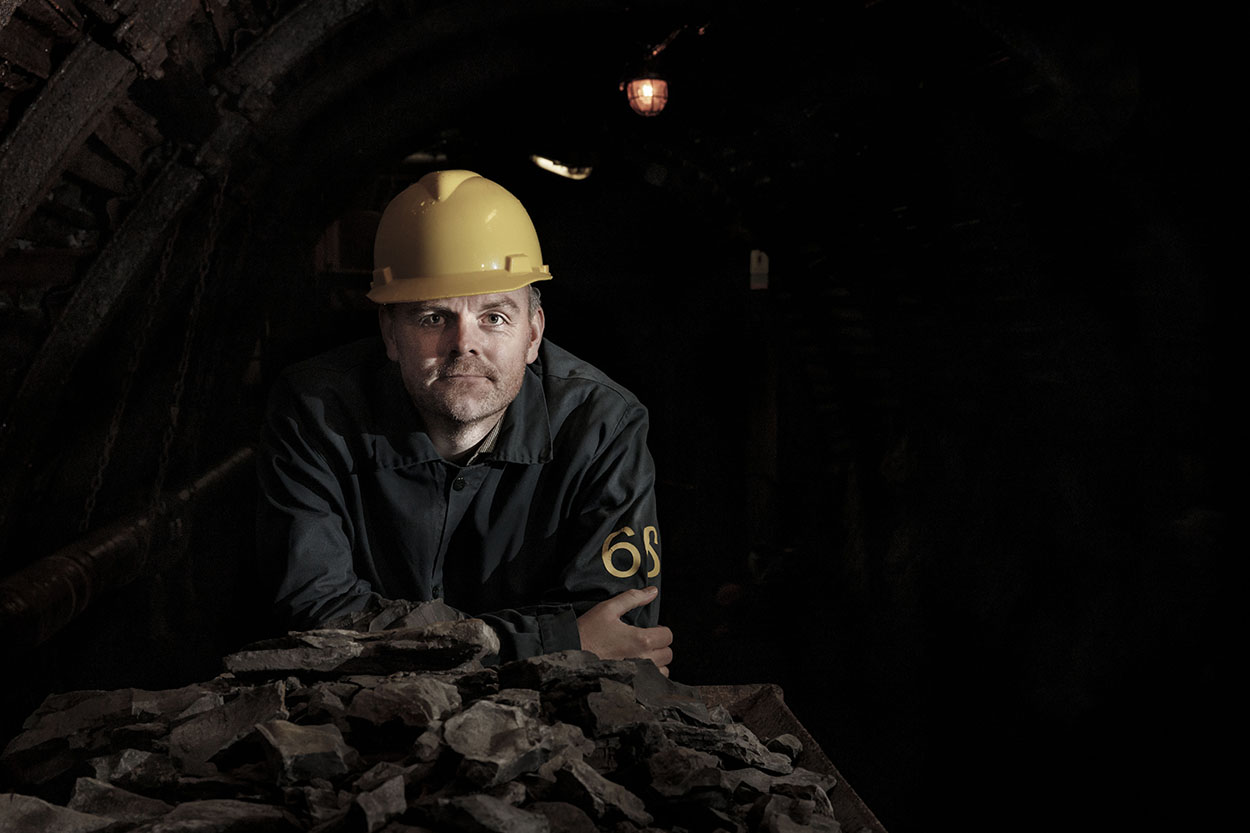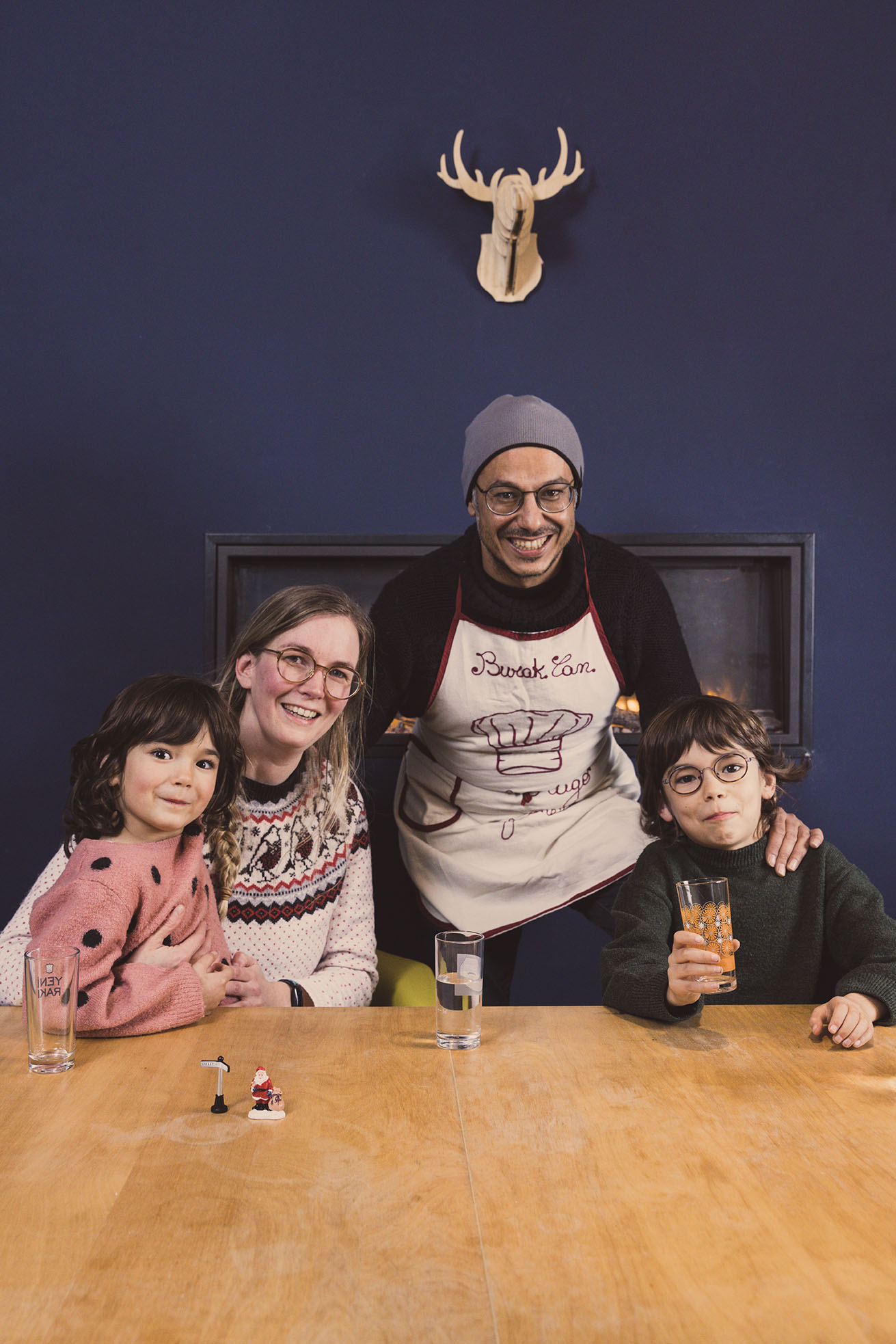Developing Best Practices in Technology Enhanced Learning — Candid Perspectives from the SBE Community
My name is Alice Pan and I entered the International Business Master program at the School of Business and Economics (SBE) as a student in September 2020. As a former classroom teacher who went through an ‘emergency online’ transition in 2020, I enrolled at SBE with a heightened awareness about the challenges of online education.
Before I started my programme at SBE, I received a brief introduction to the university's educational approach Problem Based Learning (PBL). Then once the academic year started, I experienced new approaches to what I have come to know as SBE’s PBL system in the online environment. With a critical educator’s mind—developed during my 5 years prior experience teaching both teenagers and adults—combined with a renewed student’s curiosity, I have observed that some assignments and course structures worked well, while others seemed counterproductive to the educational objectives. At the same time, one aspect that I have encountered consistently throughout is a willingness to adapt course design, and teaching methods and materials to meet the needs of an ever-changing and unfamiliar situation.
Collecting perspectives from the UM community
All this has made me only more curious to better understand the philosophy, rationales and thought processes behind the various choices that were being made. In the spirit of value co-creation and inclusivity that are core values at UM and SBE, this blog is an attempt to bring forth the richness of knowledge, experience, reflection, and wisdom that exists within the SBE community, with the intention of inspiring more discourse contributing to the ongoing discovery and development of best practices in technology-enhanced education.
For this blog, I went on a search through the School to interview members from the SBE community about the topic of technology-enhanced learning. Through this exercise, I heard from academics and students about their experiences this past year with hybrid/online education, and discussed with them what they see as challenges and opportunities technology can bring to PBL.
To accurately reflect the community, this blog is written entirely in quotes, excerpted from these conversations. For ease of reading, the blog article has been divided into the following sections:
- What is PBL and what are its main benefits?
- Why has UM been working on strengthening PBL?
- ‘Emergency Online’ format of PBL during the Covid-19 pandemic
- Positive experiences with online education
- Critiques and concerns
- What about the social aspect of learning?
- Finding innovative solutions
- Advice for the future of Technology Enhanced Learning

Alice Pan is currently a master student in International Business at SBE.
Originally from the USA, with a B.A. from Columbia University, she has lived in a variety of countries around the world. During the five years prior to the master programme, she worked full time as a classroom teacher and educational administrator.
What is PBL and what are its main benefits?
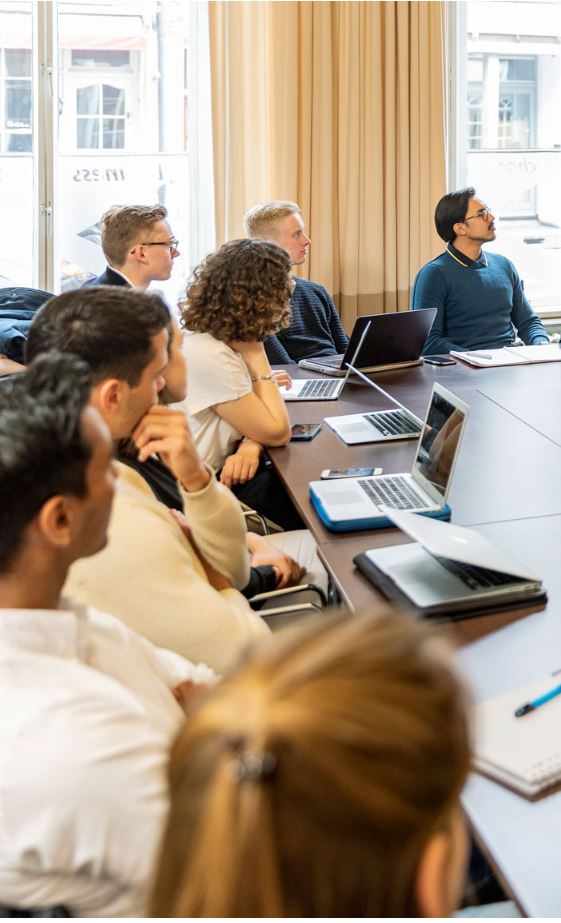
'At UM, the core principles of PBL are based on Social Constructivism, the theory that says that learning goes easier if it is Contextualised, if it is Collaborative, if it is Constructed on prior knowledge, and if you allow students to be Self-directed (CCCS).' - Associate Professor Simon Beausaert
' With PBL you have this continuous commitment and engagement throughout the course. In a traditional system, education is delivered in a more one-way street fashion, in which students more passively consume knowledge via lectures and final exams; that’s a totally different experience from actually being empowered to lead the discussion or facilitate a meeting, and by doing so actually directly influencing what you and your peers are learning. Problem based learning allows students to tap into their existing skills and knowledge and build from there. And it’s not necessarily the skills that are directly deducted from the learning goals of the course, it’s also interpersonal skills, teamwork skills, that result from working in the PBL way that are highly relevant for preparing students for their near future academic and business careers.' - Mark Steins, Lecturer, PhD. Candidate
'One of the main advantages of PBL is that it helps students maintain a certain degree of self-discipline. We provide a structure that helps students to make sure they do something every week rather than let stuff accumulate and then try to cram. Historically, this is one of the underlying ideas of the whole PBL philosophy—we have the weekly tutorials basically forcing students to keep up, rather than exam-oriented learning at the last possible moment.' - Christian Kerckhoffs, Lecturer
How has UM been working on strenghtening PBL?
'The UM Institute for Education Innovation (EDLAB) is current working on the EDvance project. With this, we are trying to find good practices in blended or technology-assisted education, good practices that maintain the CCCS principles. The EDvance project has two parts, one of which is a literature review that will give stronger evidence to our recommendations of good practices. The literature review focuses on good practices from both before and during Covid. Furthermore, we also want students to feel good, focusing on student engagement and wellbeing.'
'In the second part of EDvance, we are interviewing many people within UM, to inform ourselves on the good practices from this academic year, and focus on all the educational activities. Next, we would like to interview people from outside UM to learn about their experiences of good practices.' - Anne van Dijk, Researcher
SBE's adapted education models in response to the Covid-19 pandemic
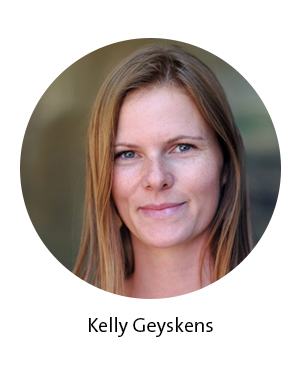
'Last year, we had to switch to online from one day to the next. At the time, I was coordinating a first-year bachelor course with 1,200 students. The School asked me for input on how to go about this transition to online since it would also affect me. They wanted me to think along to see what was feasible from my perspective. That's how I ended up being part of the team developing the alternative educational model for this academic year. This was not my intention but in the end, I really enjoyed it.'
'At first, when social distancing was put into place as a COVID-19 safety measure, we had great difficulties in accommodating students on campus. See, we don’t have a lot of large rooms: with social distancing measures, most rooms could only host up to 4 students at a time. In order to be fair and give everyone the opportunity to come to campus, we developed the educational model where students had one online tutorial and one team session in smaller teams with what we call a ‘flying tutor,’ because we also have limited numbers of tutors.' - Associate Professor Kelly Geyskens
*Note: Once the Netherlands went into full lockdown, education at SBE went fully online and will continue to be online until the end of this academic year. Next academic year (2022-23), education will once again be fully on campus.
Positive experience with online education
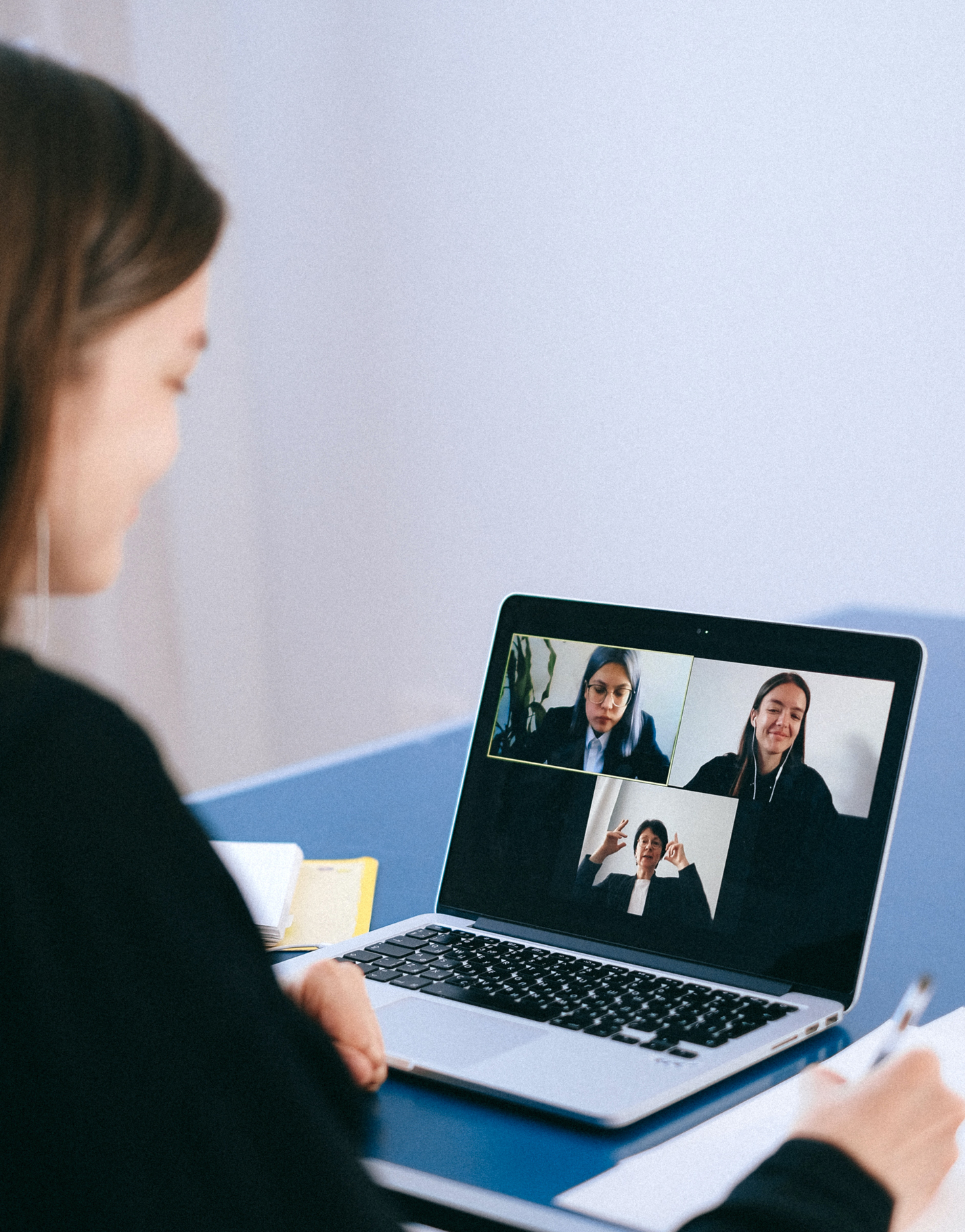
'With regard to online education, I think a lot of positive things are happening. You see that students are being more supported in their self-directed learning, because the direct contact hours are more limited, for example through the use of flipped-classroom approaches.' - Associate Professor Simon Beausaert
One good thing about online education is that you can reach more experts from further away. I was able to access high-quality guest speakers from a startup in San Francisco or the McLaren Racing team in Surrey who wouldn’t usually have the time to fly to Maastricht to give a one hour talk; so I see the online mode as a great way to access speakers at a distance, and that is definitely something I will continue once we are back on campus.' - Assistant Professor Jermain Kaminski
'Online education has allowed me more flexibility in my private life and a better work-life balance. I can plan my own day, no time and money spent in transit, no wasted time in longer breaks in between classes. Also, since everything is online, I can easily download and organise files, take screenshots during classes, all materials are shared online, lectures sometimes recorded etc. Everything is available digitally.' - Master Student Perspectives
Critiques and concerns
'Just because I do research about technology in education doesn’t mean I advocate for using it no matter what. Technology is great but it can never replace the real personal context—for example, being able to see someone’s body language, it’s so important. And general educational technology cannot replace that yet. I also think that the ability to really sit next to someone and go through something difficult together, personal education is really important for that. In my view, technology should ideally be used "in addition to" and not by itself. Of course, the pandemic forced us to do that, but for the long run we should combine the positive sides of both online and offline education to optimize learning.' - Professor Carla Haelermans
'I could imagine that there are certain activities that could function better in an online environment, but less so for the kind of courses that I teach, because these courses all have a very quantitative orientation. Learning to perform certain mathematical derivations is just not a spectator sport. The physical act of struggling with equations—and this is supported by research—activates certain parts of the brain, hand-eye coordination plays a role. It’s an illusion to think you can learn this by passively looking at someone who is writing something down on a virtual whiteboard.'
'There is always the risk that activities or technologies that we intend to be complementary actually act as substitutes. For example, imagine that you upload very good video clips, which apparently make it easy for students to understand (or think they understand) the materials just by watching them a few times. Those clips then actually act as substitutes for other activities: e.g., many students may stop reading the textbook. Now some of my colleagues may say: well, so what? That’s the future! Generation Z doesn’t read anymore. I object to that. I honestly think that this kind of passive consumption does not constitute real learning. A textbook is typically written by people who have thought about a certain topic for decades, and have arranged their thoughts in a logical sequence, where chapter Y builds on chapter Y-1. Students should not immediately try to read a summary, or watch a clip; they should read the original text and then make a summary themselves, marking crucial sentences etc, because that process is, in fact, a crucial part of the learning experience.' - Christian Kerckhoffs, Lecturer
'Depends on the group and the tutor, but in some classes, people did not really actively participate in class, there were often long awkward silences where no one would answer questions. Especially unpleasant when it's not the teacher talking, but a student facilitating a class. It's very easy to be passive and hide behind your screen. Also, sometimes there is less accountability in group work. Since people don't really know each other personally, I feel like they sometimes feel less connected/accountable towards you and the team's project.' - Master Student Perspectives
What about the social aspect of learning?
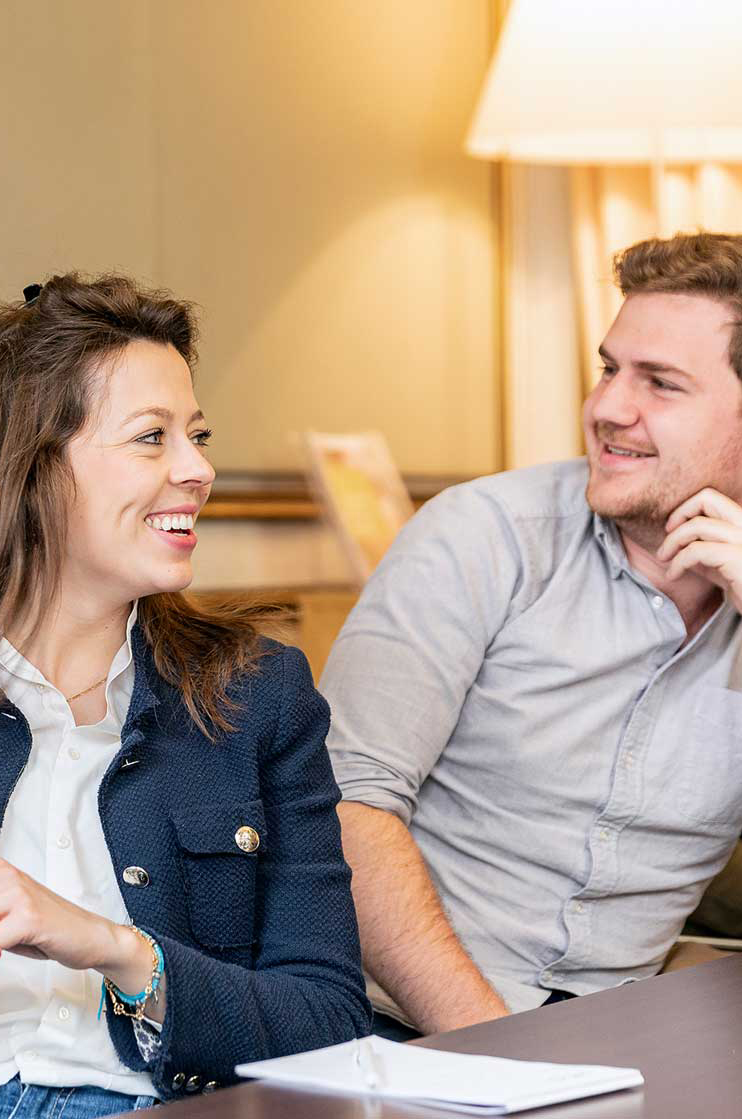
'In general, education has three big functions: it’s about developing students’ competencies, it’s about personal development, and it’s also about socialisation. These last two factors were really under pressure.' -Associate Professor Simon Beauseart
'I’ve experienced overall less personal connections. I found it a lot easier in my bachelor's (in-person education) to meet people and build friendships. The time I save now (transit, breaks between classes, lunch) was the time that I usually spent with other people at university. - Master Student Perspectives
The social aspect of educational experience is important, and that’s also what the research shows. However, valuable for activating learning is not only the classroom experience itself but the social interaction before and after class that motivates students to come. In online teaching, we probably made large steps forward in better distance education, but we need to think better about the social experience beyond the classroom as well.' - Assistant Professor Jermain Kaminski
'Last year, together with Sjoke Merk, we organised “Friday afternoon drinks” where students could join on a voluntary basis to ask questions about their projects but also to just chat. We had a show-up rate of more than 90% and among course-related matters discussed plenty of other things. And so for that reason, I believe that not only UM values the importance of a strong community, students really need it. I always try to make sure that students know where to find me, also in the online environment.' - Mark Steins, Lecturer, PhD. Candidate
Finding innovative solutions

'Based on similar initiatives at other Dutch universities, we started "UM Walks", where students and staff were randomly connected for a walk under consideration of the safety standards. While we have seen a lot of students in isolation, only focusing on lectures, the platform enabled a way to bring back serendipitous encounters. Since February ‘21 we connected 3,500 students and staff across UM. The rectorate, social media, privacy and internet team of the university were very helpful in the whole process.' - Assistant Professor Jermain Kaminski
'Teaching online and the resulting screen time drains a lot of energy. Although taking a break from the screen in-between tutorials is very necessary, it is important to realize that as an educator you can have a huge impact on student well-being by making certain things more explicit. It can be as simple as “I’m here for you if you need a digital coffee” or by staying in a zoom call after the tutorial has been closed, to see if someone is looking for a more private chat. I know that time constraints do not always allow for offering such service, but often you can.' - Mark Steins, Lecturer, PhD. Candidate
'In the first-year bachelor course this year, it was very exciting, because students were new, they didn’t know each other, they didn't know the university, and with the "flying tutor" model, they had to figure out how to work in teams on their own. Instead of having the tutor to give guidance, students would discuss on their own, and then follow a kind of quiz to make sure they would get the right answer regarding what they should have discussed. So there you have to come up with alternative tools to make sure students learn the right things. But I think it also challenges us as tutors and coordinators to think differently.' - Associate Professor Kelly Geyskens
'Because I was aware that students have a lot of screen time and in every course, they have a final presentation or some pitch of some sort, I decided to try something new. I thought, podcasts are very prevalent, and in a podcast, you learn to tackle certain issues and explain what it is about. To make a pocast, students go through the same material as they would do for an essay, it’s just that the form that they use to transfer the information is different. Students also get to hear what each other produced.'
'In some of my courses, I provide a bi-weekly summary podcast to students, usually not longer than 20 minutes. I am aware that it sounds absolutely cliché these days, but the reception so far is very good with about 80-90% of students listening. On one hand, it helps students to remember teaching content, on the other it helps tutors to be on the same page. While it can support well-aligned learning outcomes across tutorial groups, it also can be easily combined with other activities like cooking or a commute.' – Assistant Professor Jermain Kaminski
'There are so many tools for online collaboration, for asking people’s opinions, for testing their knowledge, you name it—there are so many tools that you can use, and they’ve been around for a long time already, so looking back at it, it’s kind of strange that we haven’t really used them that often. You can build whole dashboards, which have some automatic feedback functions, warning functions if you don’t hand in assignments, if you perform below par... all these things also give so much information to you as a teacher, if you use them to their full extent in your course. I think it becomes clearer now, but it is still undervalued, how technology can help you in your teaching activities.' - Professor Carla Haelermans
Advice for the future of Technology Enhanced Learning

'I have to say that the online education actually worked better than I expected, but that actually tells you more about the level of my expectations than about the quality of those classes. I am still convinced that these online sessions really cannot replace physical tutorials. The reason is the unbalanced change in the possibilities for interaction among students and with the tutor. I say “unbalanced” because, while the net effect on that interaction is clearly negative, there are of course very positive things, for example, the ability to share your screen, to use the Zoom whiteboard, to annotate. But all that could also be replicated at a physical location where proper equipment is available. It doesn’t mean those online tutorials have to disappear entirely, but I would say that their role in the future should be limited, and we should not think of them as a substitute for real meetings.' - Christian Kerckhoffs, Lecturer
'I think the last few months hold two bits of good news for both conservative and liberal views of online education: One is not to underestimate the value of proximity in the social process of learning. It may also be something very human and evolutionary that we learn socially very effectively. At the same time, with technical means, we are at a point today that not everyone would have imagined we could reach so quickly. For instance, we have been given a very effective lever with tools like Zoom, and even simple features such as breakout rooms and emoji. The picture that emerges for me is that we need to bring more technology into the offline classroom and more human into the online classroom. Just don't get locked into the idea that only one option is superior, because then you either become technocratic, or anachronistic.' - Assistant Professor Jermain Kaminski
'The main conclusion of all the studies I’ve done regarding the use of technology in education is that it is a means to achieve something—not a goal in itself, and it doesn’t replace people or teachers or anything. We can prove as much as we want that technology is effective, but if the teacher doesn’t use it in an effective way, then it’s a waste of time and money. Letting people bottom-up decide what they want to use and why, instead of enforcing it top-down, is so important . The autonomy of the teachers is very important here, they know the content of their course best, and which teaching method (using technology or not) fits a certain part of the content best.' - Professor Carla Haelermans
Also read
-
In recent years, there has been quite some debate surrounding the value of rakings. So the question is: do university rankings really matter that much? Fair question. In this article, SBE’s Dean Mariëlle Heijltjes and SBE’s Associate Dean Gaby Odekerken weigh in on the subject.
-
Why do humans act the way they do? To answer this complex question, Hannes Rusch has to be a bit of everything: economist, biologist, philosopher, mathematician. He recently received a €1.5 million ERC Starting Grant to develop and empirically validate an interdisciplinary theoretical framework for...
-
Things are bustling around the kitchen table of Burak Can, associate professor of Data Analytics and Digitalisation. A mix of Turkish, English and Dutch can be heard. “I speak Turkish with my children, my wife Ingrid speaks Dutch with them, and we speak English with each other.” On the menu is one...

